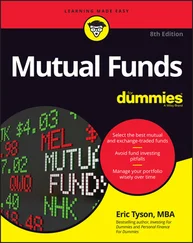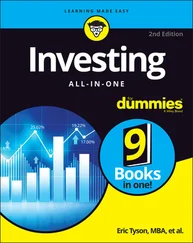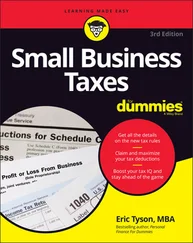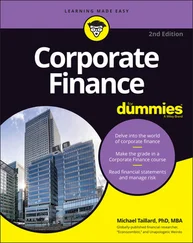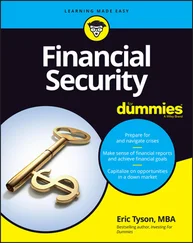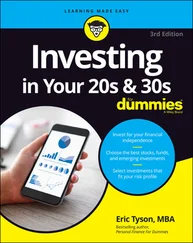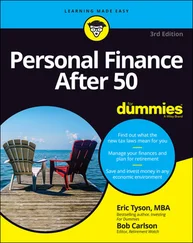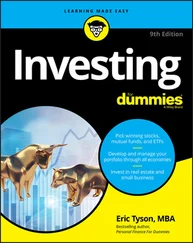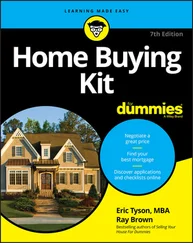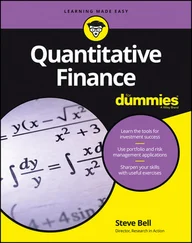Kicking the credit-card habit
It’s fine to use your credit cards as a convenient payment method — and possibly to earn benefits and rewards — if you pay your bill in full each month and don’t spend more due to having the cards. I’ve used them my entire adult life and also have reward cards that provide me with free and discounted airline tickets and hotel stays.
However, with their wide acceptance by merchants and their ease of use, having credit cards can foster living beyond your means by extending credit. That’s why I recommend that you cut up all your credit cards and call the card issuers to cancel your accounts if you have a habit of accumulating debt on credit cards.
You can manage your finances and expenditures without having a credit card. Now, if you can trust yourself to be responsible, keep one credit card only for new purchases that you know you can absolutely pay in full each month. But if you decide to keep one widely accepted credit card instead of getting rid of them all, be careful. You may be tempted to let debt accumulate and roll over for a month or two, starting up the whole horrible process of running up your consumer debt again. Even better than keeping one credit card is getting a debit card (see the next section).
 If you’re not going to take my advice to get rid of all your credit cards or secure a debit card (discussed in the next section), be sure to keep a lid on your credit card’s credit limit (the maximum balance allowed on your card). You don’t have to accept a higher limit just because your bank keeps raising your credit limit to reward you for being such a profitable customer. Call your credit-card service’s toll-free phone number and lower your credit limit to a level you’re comfortable with. Also ask your card-issuing bank not to automatically raise that limit in the future when you’re deemed eligible for an increase.
If you’re not going to take my advice to get rid of all your credit cards or secure a debit card (discussed in the next section), be sure to keep a lid on your credit card’s credit limit (the maximum balance allowed on your card). You don’t have to accept a higher limit just because your bank keeps raising your credit limit to reward you for being such a profitable customer. Call your credit-card service’s toll-free phone number and lower your credit limit to a level you’re comfortable with. Also ask your card-issuing bank not to automatically raise that limit in the future when you’re deemed eligible for an increase.
Discovering debit cards: Convenience without credit temptation
Just because you get rid of your credit cards doesn’t mean you have to always pay by check or cash. Enter the debit card, which offers you the convenience of making purchases with a piece of plastic without the temptation or ability to run up credit-card debt. A debit card looks just like a credit card with either the Visa or Mastercard logo. Debit cards have the following characteristics, which are different from credit cards:
Deduction from your checking account: As with checks, debit-card purchase amounts are deducted electronically from your checking account typically within one or two business days. By contrast, if you pay your credit-card bill in full and on time each month, your credit card gives you free use of the money you owe until it’s time to pay the bill.
Potential for overdrawing your checking account: If you switch to a debit card and you keep your checking-account balance low and don’t consistently track your account balance, you may need to start doing so. Otherwise, you may incur an overdraft (an attempt to withdraw more money than is available in your checking account) and unnecessary overdraft fees (fees charged when you overdraw your account). Overdraft protection may be worth considering, but beware of the temptation to use that as an ongoing, high-interest credit line on balances borrowed, similar to a credit card.
Shorter window of time for making disputes: Credit cards make it easier for you to dispute charges for problematic merchandise through the issuing bank. Most banks allow you to dispute charges for up to 60 days after purchase and will credit the disputed amount to your account, pending resolution. (Longer exceptions are allowed in some circumstances, for example when a contractor is doing work for you over a period of time.) Most debit cards offer a much shorter window, typically less than one week, for making disputes. (Despite widespread misperception, personal debit cards have identical fraud protection to personal credit cards.)
 If you don’t already have a debit card, ask your current bank whether it offers Visa or Mastercard debit cards. If your bank doesn’t offer one, shop among the major banks in your area, which are likely to offer such debit cards. As debit cards come with checking accounts, do some comparison shopping between the different account features and fees. Check out Chapter 11for more information about finding the right bank for you.
If you don’t already have a debit card, ask your current bank whether it offers Visa or Mastercard debit cards. If your bank doesn’t offer one, shop among the major banks in your area, which are likely to offer such debit cards. As debit cards come with checking accounts, do some comparison shopping between the different account features and fees. Check out Chapter 11for more information about finding the right bank for you.
Also check out getting a Visa or Mastercard debit card with the asset-management accounts offered by investment firms. Asset-management accounts basically are accounts that combine your investments, such as stocks, bonds, and mutual funds, with a transaction account. Check out the investment firms that I recommend in Chapter 12for brokerage services with competitive investment offerings and prices and asset management accounts. ( Note: Unfortunately, Vanguard discontinued offering their asset management account but may reintroduce it in the future, so stay tuned.)
Lowering the interest rate on consumer debt
If you do have credit-card debt, you can slow its growth until you get it paid off by reducing the interest rate you’re paying. Here are some strategies for doing that:
Stop making new charges on cards that have outstanding balances while you’re paying down your credit-card balance(s). Many people don’t realize that interest starts to accumulate immediately when they carry a balance. You have no grace period, the 20 or so days you normally have to pay your balance in full without incurring interest charges, if you carry a credit-card balance from month to month.
Apply for a lower-rate credit card. To qualify, you need a top-notch credit report and score (see Chapter 4), and not too much debt outstanding relative to your income. After you’re approved for a new, lower-interest-rate card, simply transfer your outstanding balance from your higher-rate card.
 As you shop for a low-interest-rate credit card, be sure to check out all the terms and conditions of each card. Start by reviewing the uniform rates and terms of disclosure, which detail the myriad fees and conditions (especially how much your interest rate could increase for missed or late payments). Also understand how the future interest rate is determined on cards that charge variable interest rates. See my website,
As you shop for a low-interest-rate credit card, be sure to check out all the terms and conditions of each card. Start by reviewing the uniform rates and terms of disclosure, which detail the myriad fees and conditions (especially how much your interest rate could increase for missed or late payments). Also understand how the future interest rate is determined on cards that charge variable interest rates. See my website, www.erictyson.com/ , for an up-to-date list of good, low-rate cards.
Negotiating better rates from your current credit card
Rather than transferring your current credit-card balance onto a lower-interest-rate card (as mentioned in the preceding section), you can try to negotiate a better deal from your current credit-card company. Start by calling the bank that issued your current, high-interest-rate credit card and inform the bank that you want to cancel your card because you found a competitor that offers no annual fee and a lower interest rate. Your bank may choose to match the terms of the competitor rather than lose you as a customer. If it doesn’t, get that application completed for a lower-rate card.
Be careful with this strategy, and consider just paying off or transferring the balance without actually canceling the higher-interest-rate credit card. Canceling the card, especially if it’s one you’ve had for a number of years, may lower your credit score a bit, especially in the short term. Just be sure not to run up new charges on the card you’re transferring the balance from.
Читать дальше
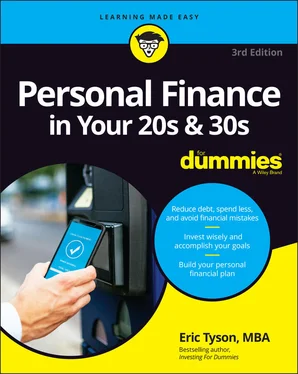
 If you’re not going to take my advice to get rid of all your credit cards or secure a debit card (discussed in the next section), be sure to keep a lid on your credit card’s credit limit (the maximum balance allowed on your card). You don’t have to accept a higher limit just because your bank keeps raising your credit limit to reward you for being such a profitable customer. Call your credit-card service’s toll-free phone number and lower your credit limit to a level you’re comfortable with. Also ask your card-issuing bank not to automatically raise that limit in the future when you’re deemed eligible for an increase.
If you’re not going to take my advice to get rid of all your credit cards or secure a debit card (discussed in the next section), be sure to keep a lid on your credit card’s credit limit (the maximum balance allowed on your card). You don’t have to accept a higher limit just because your bank keeps raising your credit limit to reward you for being such a profitable customer. Call your credit-card service’s toll-free phone number and lower your credit limit to a level you’re comfortable with. Also ask your card-issuing bank not to automatically raise that limit in the future when you’re deemed eligible for an increase. As you shop for a low-interest-rate credit card, be sure to check out all the terms and conditions of each card. Start by reviewing the uniform rates and terms of disclosure, which detail the myriad fees and conditions (especially how much your interest rate could increase for missed or late payments). Also understand how the future interest rate is determined on cards that charge variable interest rates. See my website,
As you shop for a low-interest-rate credit card, be sure to check out all the terms and conditions of each card. Start by reviewing the uniform rates and terms of disclosure, which detail the myriad fees and conditions (especially how much your interest rate could increase for missed or late payments). Also understand how the future interest rate is determined on cards that charge variable interest rates. See my website, 